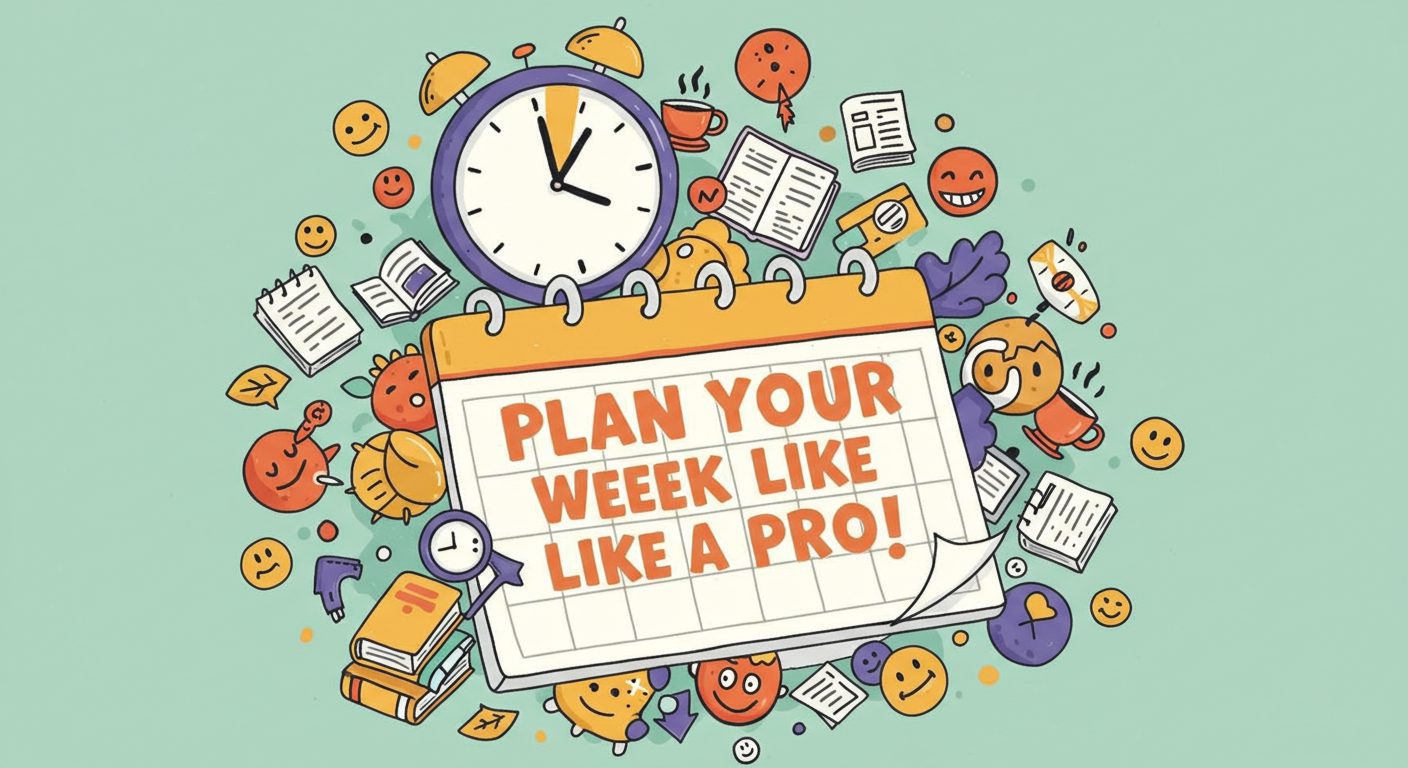1. Master the Three-Part Day Split
Ever notice how you’re sharpest in the morning but by evening, you’re scrolling social media instead of studying? That’s your energy and willpower at play. Divide your day into three parts based on these natural rhythms. Mornings are for high-energy, high-temptation tasks—think tackling that tricky math homework or writing an essay you’ve been dreading. Why? You’ve got a full tank of focus to resist distractions. Midday is for high-energy, enjoyable tasks, like group study sessions or hitting the gym. By evening, when energy dips and procrastination looms, save low-energy, creative tasks, like brainstorming ideas or journaling. Ask yourself: What’s the toughest task I need to crush this week? Slot it early to harness your peak focus.
2. Embrace the Mission Impossible Rule
You add “finish research paper” to your calendar, but the deadline feels daunting. Instead of stressing, try the Mission Impossible Rule. Add big tasks to your calendar as reminders, not must-do’s. This keeps them on your radar without the pressure to complete them in one go. Research shows our brains stay engaged with unfinished tasks, sparking ideas even when you’re not actively working. For example, schedule a weekly nudge for “plan group project” to keep it simmering in your mind. It’s like planting seeds—your brain will work on it in the background. What’s a big goal you want to keep in sight without overwhelming yourself?
3. Use the PR Rule for Smarter Deadlines
Ever given yourself a week to write a paper, only to scramble the night before? The PR Rule (from Parkinson and Roosevelt) says work expands to fill the time you give it. To outsmart this, set tight, intentional deadlines. Need to prep a presentation? Block out two focused hours instead of a vague “all day.” Better yet, schedule only the end goal—like “submit assignment”—not every tiny step. This gives you freedom to work at your pace while creating positive pressure to finish. Try it: pick one task this week and give yourself half the time you’d normally allot. You’ll be amazed at how much you accomplish.
4. Start Your Day with a Morning Glow
What’s the first thing you do each morning? Scroll your phone? Rush to class? The Morning GL Rule suggests kicking off your day with something small you love—like savoring a coffee, listening to music, or stretching outside. It’s not about adding pressure; it’s about setting a positive vibe. One student swore by a 10-minute podcast while eating breakfast, which left her energized for lectures. Even five minutes of joy can reframe your day as something to look forward to. What’s one tiny ritual you could add to spark your mornings?

5. Prioritize the Fun Factor
School and work can feel like a grind, but life’s too short to skip joy. The Fun Factor is about scheduling fun like it’s a non-negotiable. Block out time for a movie night, a coffee date with friends, or even a solo walk to clear your head. Color-code these in your calendar for a visual boost—every time you glance at it, you’ll see bursts of happiness amid the hustle. One student found that planning a weekly board game night kept her connected and recharged. Fun isn’t a luxury; it’s fuel. What’s one fun activity you’ll commit to this week?
6. Strategically Over-Plan to Free Your Mind
Your brain isn’t a storage unit for every to-do. Strategic Over-Planning means using your calendar as a catch-all for tasks, ideas, and reminders, so you don’t have to mentally juggle them. Instead of a separate to-do list, slot everything into your calendar—from “email professor” to “call mom in two weeks.” Overbook without fear; it’s about externalizing thoughts, not locking yourself in. This frees mental space for creativity and focus. Try dumping every task you’re thinking about into your calendar this week—big or small—and notice how much lighter you feel.
Key Takeaways
- Three-Part Day Split: Match tasks to your energy levels—tough stuff early, fun midday, creative at night.
- Mission Impossible Rule: Add big tasks as reminders to keep them alive without pressure.
- PR Rule: Set tight deadlines and schedule end goals for efficiency and freedom.
- Morning GL Rule: Start with a small, joyful ritual to set a positive tone.
- Fun Factor: Schedule fun like it’s a priority to recharge and stay balanced.
- Strategic Over-Planning: Use your calendar to offload tasks and free your mind.
Conclusion
Planning your week doesn’t have to feel like chaining yourself to a desk. These strategies are flexible, letting you craft a schedule that fits your life—whether you’re a night owl, a morning person, or somewhere in between. The beauty of a smart calendar is that it’s not about perfection; it’s about creating space for what matters—your studies, your passions, your people. So, grab your phone or planner and experiment with one or two of these ideas this week. Maybe start with a morning ritual or a fun night with friends. You’ve got the tools to make your week not just manageable, but exciting. Here’s to designing a life you love, one day at a time!
